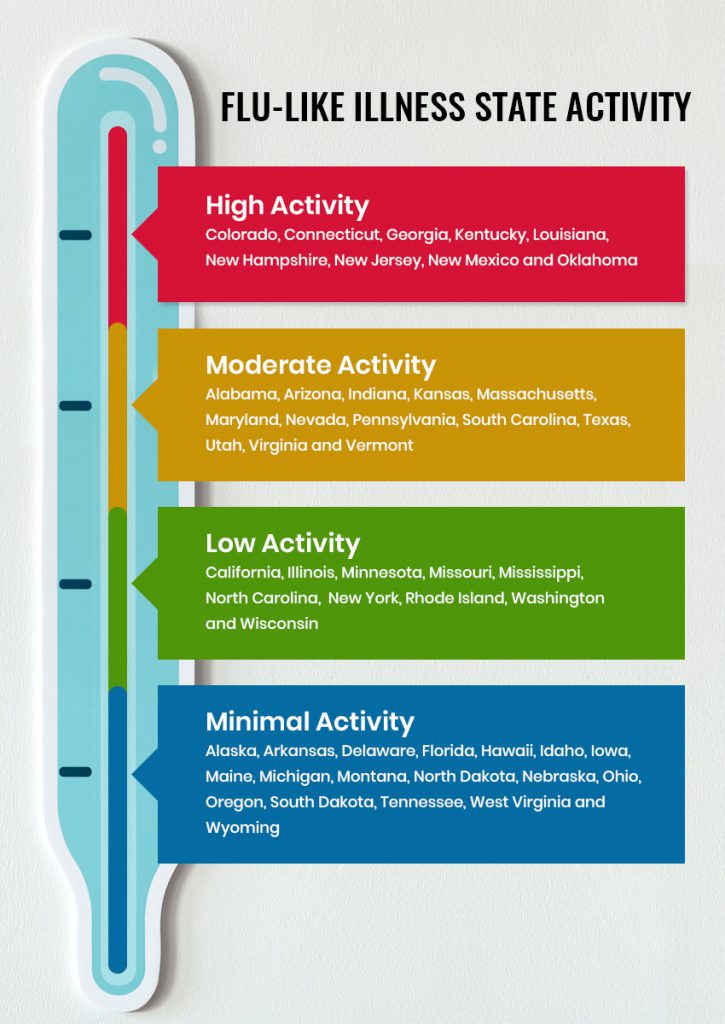According to the FluView report of this week, the flu season in the U.S. is in full swing. Seasonal influenza-like activity remains high in some states, as the flu has been spreading in most of the country.
The Centers for Disease Control and Prevention (CDC) health officials said on January 18 that they are expecting that the flu activity will remain elevated for a few weeks. According to CDC, for the 2018-2019 season, there were 19 flu-associated pediatric deaths.
Since October 1, 2018, more than 3,500 lab-confirmed flu-associated hospitalizations have been reported from the Influenza Hospitalization Network (FluSurv-NET). This interprets to an overall rate of 12.4 hospitalizations per 100,000 people in the United States.
It has been found that the highest hospitalization rate is among adults above 65 years of age, followed by children below 5 years and adults between 50 and 64 years of age.
The CDC maintains a weekly flu surveillance report prepared by its Influenza Division.
Here’s the summary of the key influenza indicators for the week ending on January. 12, 2019.

CDC officials say that the severity of flu is assessed considering the levels of flu-like illness, flu hospitalization rates, and the death percentage resulting from influenza or pneumonia, which occurred during each season.
They further said it is difficult to say at this time how severe the 2018-2019 season would be, as there are still a few weeks of influenza activity to come. However, at this juncture, flu severity indicators are quite lower than they were during the last season.
As per reports until January 11, 2019, the CDC estimates that this flu season has resulted from 6.2 to 7.3 million flu illnesses, 2.9 to 3.5 million medical visits, and 69,300 to 83,500 flu hospitalizations.
There are a few controversies and divergences when it comes to a flu vaccine. However, whether or not you take a shot, there are some effective ways to protect yourself from catching flu. There are a few ways to boost and improve your immune system to fight flu.
Since ancient times, traditional healers have used oregano extract as one of the natural remedies to treat flu, colds, coughs, sore throats, and bronchitis. According to several studies, oregano contains volatile oils that have antibacterial, antiviral, and anti-inflammatory properties. Another natural remedy used was olive leaf extract, which is also said to be extremely useful in boosting the immune system.
Meanwhile, the CDC is recommending flu immunization for those aged 6 months and older who have not taken flu shot yet this season. The officials claim that an annual flu shot is the best way to prevent influenza. Flu immunization not only helps prevent potentially serious complications from influenza (including death) but also has been found to decrease the severity of flu among people who took vaccine but still get sick.






















